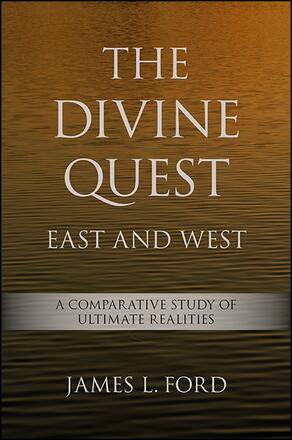
The Divine Quest, East and West
A Comparative Study of Ultimate Realities
Alternative formats available from:
Looks at the concept of Ultimate Reality in Hinduism, Buddhism, Judaism, and Christianity.
Description
Many books have discussed the development of the notion of God in Western monotheistic traditions, but how have non-Western cultures conceptualized what those in the West might identify as "God"? What might be learned by comparing different visions of the Divine, such as God, gods, Brahman, Nirvana, and Emptiness? James L. Ford engages these fascinating questions, exploring notions of "the Divine" or "Ultimate Reality" within Jewish, Christian, Hindu, and Buddhist traditions. Looking at a multiplicity of divine conceptions, even within traditions, Ford discusses the relationship between imagination and revelation in the emergence of visions of ultimacy; consequences and tendencies associated with particular notions of the Ultimate; and how new visions of the Ultimate arise in relation to social, cultural, political, and scientific developments. Ford reflects on what can be learned through an awareness of the various beliefs about the Ultimate and on how such disparate visions influence the attitudes and behavior of people in different parts of the world.
James L. Ford is Professor of Religion at Wake Forest University and the author of Jōkei and Buddhist Devotion in Early Medieval Japan.
Reviews
"Given the quality of its content and the clarity of its style … Ford's Divine Quest could well serve both graduate and undergraduate courses in world religions, interreligious dialogue, and comparative theology." — Horizons
"…fascinating and thorough." — CHOICE